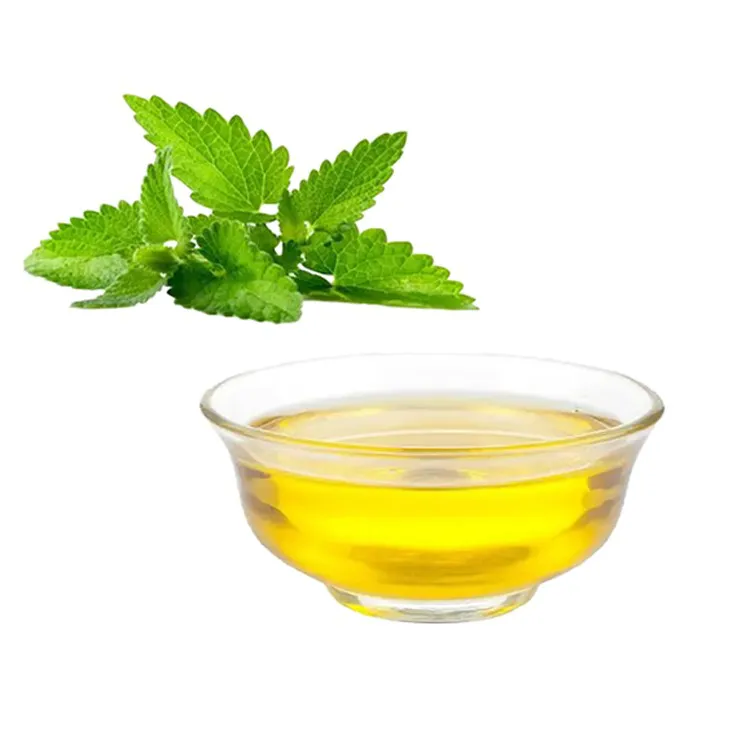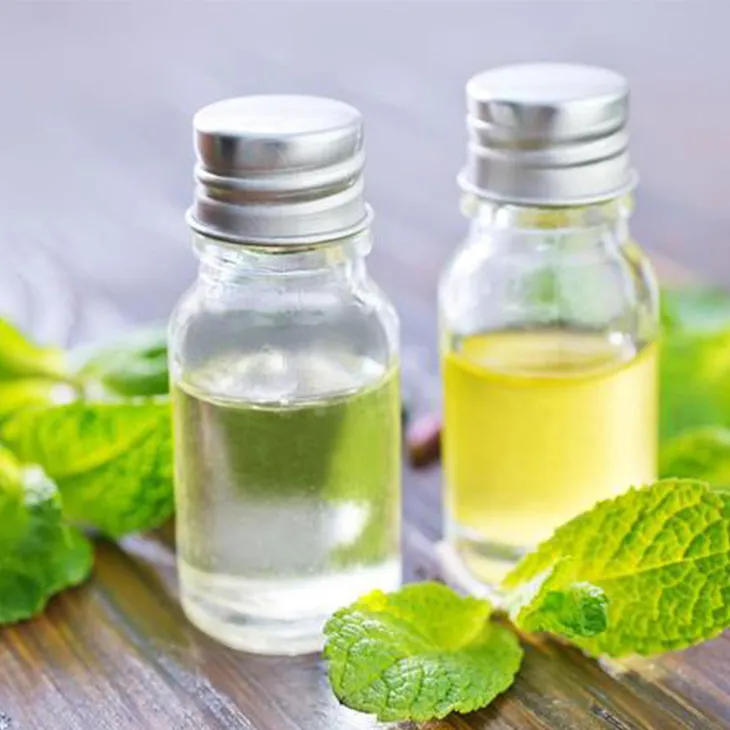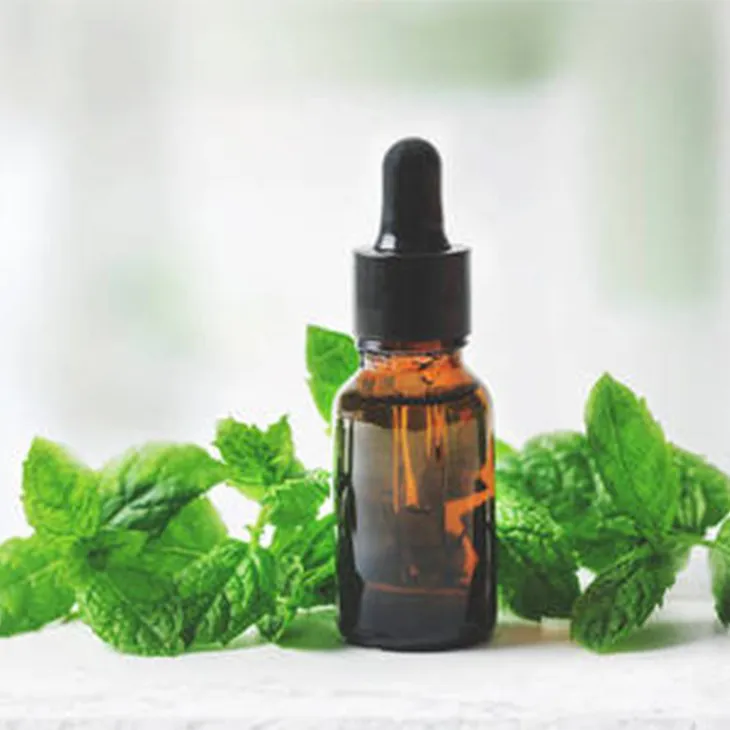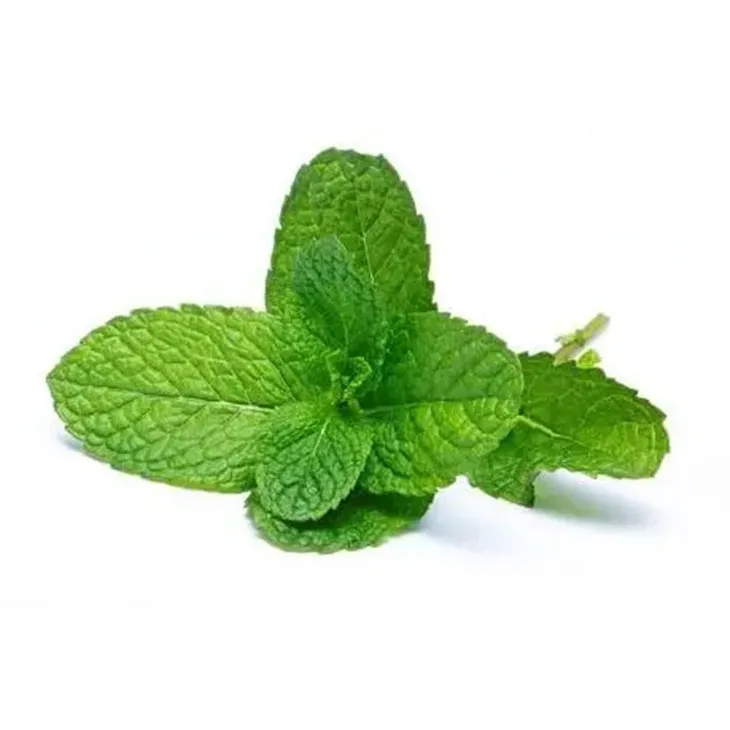- 0086-571-85302990
- sales@greenskybio.com
Commercial Advantages of Organic Peppermint Oil
2024-12-20

1. Introduction
Organic Peppermint Oil has emerged as a highly valuable commodity in the commercial world. With its unique properties and characteristics, it offers a plethora of advantages across various industries. This article will delve into the different aspects that contribute to its commercial success.

2. Agricultural Advantage: Meeting the Demand for Sustainability
Organic Certification and Consumer Appeal
- In the agricultural aspect, organic Peppermint Oil is a prime example of a product that aligns with the growing trend of sustainability. As consumers become more environmentally aware, the demand for products with an organic certification has been on the rise. Organic Peppermint Oil is produced without the use of synthetic pesticides, fertilizers, or genetically modified organisms (GMOs). This makes it an ideal choice for those who are concerned about the environmental impact of their purchases.
- For instance, in many developed countries, consumers are willing to pay a premium for products that are labeled as "organic." The "organic" label not only indicates a more sustainable production method but also implies a certain level of quality and purity. This gives organic peppermint oil an edge in the market, especially in regions where consumers are more conscious about their ecological footprint.
- Organic farming practices used in the production of peppermint oil contribute to soil health. By avoiding the use of synthetic chemicals, the soil's natural fertility is maintained and enhanced over time. This is beneficial for the long - term viability of peppermint farming. Healthy soil can support better growth of peppermint plants, leading to higher - quality oil production.
- Furthermore, organic farming methods often involve crop rotation and the use of natural compost. These practices help in preventing soil erosion and nutrient depletion. For example, in a peppermint - wheat rotation system, the wheat can help in fixing nitrogen in the soil, which is then available for the peppermint plants when they are planted in the following season. This symbiotic relationship between different crops in an organic farming system ensures the continuous and sustainable production of organic peppermint oil.

3. Marketing Advantage: The Power of the "Organic" Label
Attracting Health - Conscious Consumers
- From a marketing perspective, the "organic" label significantly enhances the value of peppermint oil. In today's health - conscious society, consumers are constantly seeking products that are natural and free from harmful chemicals. Organic peppermint oil fits this bill perfectly. It is often associated with various health benefits, such as aiding digestion, relieving headaches, and providing a natural energy boost.
- For example, many health - food stores prominently display organic peppermint oil as a natural remedy. They market it to customers who are looking for alternative ways to improve their well - being. These consumers are more likely to choose organic peppermint oil over its non - organic counterparts, believing that the organic version is purer and more effective.
- The "organic" label also appeals to quality - seeking customers. These are consumers who are willing to invest in products that they perceive as being of a higher quality. Organic peppermint oil, with its strict production standards and natural origin, is seen as a premium product. It is often used in high - end cosmetic and personal care products.
- For instance, luxury spas may use organic peppermint oil in their massage oils and body scrubs. The use of the organic label not only justifies the higher price point but also adds to the overall appeal of the product. It gives the impression that the customer is receiving a top - quality, exclusive experience.

4. Functional Advantage: Wide - Ranging Applications
Household Products: A Natural Deodorizer
- In the household products domain, organic peppermint oil has a significant role to play. One of its main applications is as a natural deodorizer. Its strong and refreshing aroma can effectively mask unpleasant odors. For example, it can be added to homemade cleaning solutions for kitchens and bathrooms.
- When used in cleaning products, organic peppermint oil not only provides a pleasant smell but also has antibacterial properties. It can help in keeping surfaces clean and free from harmful bacteria. This makes it a popular choice for those who prefer natural and non - toxic cleaning alternatives.
- In the textile industry, organic peppermint oil can be incorporated into fabric fresheners. Its pleasant scent can linger on fabrics for a long time, providing a fresh and clean feeling. This is especially useful for items such as bedding, towels, and clothing.
- Moreover, the natural properties of peppermint oil can also act as a deterrent to insects. In regions where moths or other fabric - damaging insects are a problem, using fabric fresheners with organic peppermint oil can help in protecting textiles without the need for harsh chemical pesticides.
- Another functional advantage of organic peppermint oil is its versatility in blending with other essential oils. It can be combined with oils such as lavender, eucalyptus, and lemon to create unique and complex scents. This allows for the expansion of its potential product range.
- For example, in the aromatherapy industry, blends of peppermint oil with other essential oils are used to create different therapeutic effects. A blend of peppermint and lavender oil may be used for relaxation, while a blend of peppermint and eucalyptus oil can be used for respiratory relief. This ability to blend with other oils makes organic peppermint oil a valuable ingredient in the formulation of various products.

5. Conclusion
Organic peppermint oil offers a wide range of commercial advantages. Its agricultural sustainability, marketing appeal, and functional versatility make it a highly sought - after product. As consumer demand for organic and natural products continues to grow, the commercial potential of organic peppermint oil is likely to expand even further. Industries across the board should take note of these advantages and explore ways to incorporate this valuable ingredient into their products.
FAQ:
What are the main commercial advantages of organic peppermint oil?
Organic peppermint oil has several main commercial advantages. Firstly, in agriculture, being an organic product, it caters to the growing demand for sustainable and environmentally - friendly ingredients, which gives it an advantage in markets where consumers are concerned about ecological footprint. Secondly, from a marketing point of view, the 'organic' label increases its value, appealing to health - conscious and quality - seeking customers. Functionally, its strong and refreshing aroma has diverse applications. It can be used as a natural deodorizer in household cleaning products and in fabric fresheners in the textile industry. Also, it can be easily blended with other essential oils, expanding its potential product range.
How does the 'organic' label contribute to the commercial value of peppermint oil?
The 'organic' label significantly contributes to the commercial value of peppermint oil. It attracts health - conscious and quality - seeking customers. In today's market, many consumers are willing to pay a premium for products that are organic as they believe such products are more natural, pure, and produced in an environmentally - friendly manner. This perception enhances the desirability and thus the commercial value of organic peppermint oil.
In which industries can organic peppermint oil be used commercially?
Organic peppermint oil can be used commercially in multiple industries. In the household products industry, it can be used in cleaning products as a natural deodorizer. In the textile industry, it can be incorporated into fabric fresheners. It also has potential applications in the cosmetic and personal care industries due to its refreshing aroma and beneficial properties. Additionally, it can be used in the food and beverage industry for flavoring in some cases (when it meets the relevant safety and regulatory requirements).
Why is the strong aroma of organic peppermint oil an advantage commercially?
The strong aroma of organic peppermint oil is a commercial advantage because it has wide - ranging applications. Its refreshing scent can be used to mask unpleasant odors in household and textile products, making it a great ingredient for cleaning products and fabric fresheners. In the cosmetic and personal care industry, the aroma can add a pleasant and invigorating quality to products like lotions, shampoos, and soaps. It can also be used in aromatherapy products, which are becoming increasingly popular among consumers seeking relaxation and stress relief.
How does the versatility of organic peppermint oil affect its commercial potential?
The versatility of organic peppermint oil greatly affects its commercial potential. It can be easily blended with other essential oils. This allows for the creation of a wide variety of unique scents and product formulations. For example, it can be combined with lavender oil for a relaxing blend or with citrus oils for a more energizing combination. This ability to blend expands its potential product range, enabling it to be used in different types of products across multiple industries, thereby increasing its commercial opportunities.
Related literature
- The Commercial Potential of Organic Essential Oils"
- "Organic Peppermint Oil: Properties and Market Trends"
- "Advantages of Organic Ingredients in the Global Market"
- ▶ Hesperidin
- ▶ Citrus Bioflavonoids
- ▶ Plant Extract
- ▶ lycopene
- ▶ Diosmin
- ▶ Grape seed extract
- ▶ Sea buckthorn Juice Powder
- ▶ Fruit Juice Powder
- ▶ Hops Extract
- ▶ Artichoke Extract
- ▶ Mushroom extract
- ▶ Astaxanthin
- ▶ Green Tea Extract
- ▶ Curcumin
- ▶ Horse Chestnut Extract
- ▶ Other Product
- ▶ Boswellia Serrata Extract
- ▶ Resveratrol
- ▶ Marigold Extract
- ▶ Grape Leaf Extract
- ▶ New Product
- ▶ Aminolevulinic acid
- ▶ Cranberry Extract
- ▶ Red Yeast Rice
- ▶ Red Wine Extract
-
Acerola Juice Powder
2024-12-20
-
Horse Chestnut Extract
2024-12-20
-
Phyllanthus Emblica Extract
2024-12-20
-
Saw Palmetto Extract
2024-12-20
-
Reishi mushroom extract
2024-12-20
-
Black Rice Extract
2024-12-20
-
Rose Hip Extract
2024-12-20
-
Purple Sweet Potato Extract
2024-12-20
-
Chasteberry Extract
2024-12-20
-
Carrageenan Extract Powder
2024-12-20





















